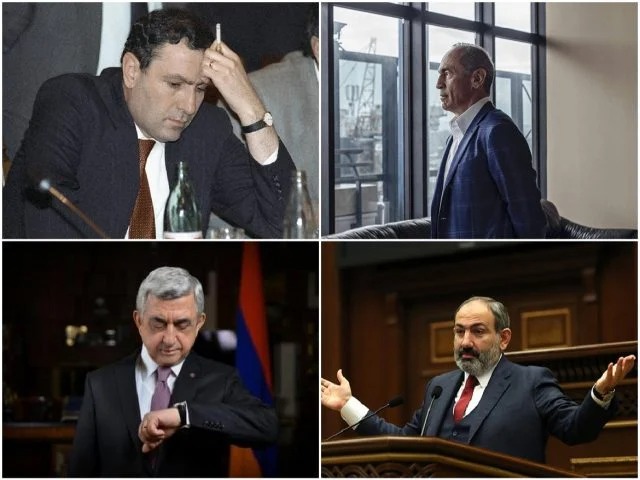My impression is that the acting prime minister, who cannot accept any criticism, accepts the assessments of the first president of Armenia more painfully.
Now, in response to Ter-Petrossian’s criticism, Pashinyan claimed that Ter-Petrossian “wanted to hand over Artsakh” to Azerbaijan. He also claimed that the other former presidents wanted to “hand over” Artsakh. He repeated that thought yesterday, too.
In general, looking back at the intentions of politicians is ungrateful. What the former leaders wanted to do may be an interesting question, but it is very difficult to verify. Ter-Petrossian himself made an accurate judgment on that topic (though on a completely different occasion) in one of his books. Speaking of purely external (deductive) mental exercises, he notes that “no court has proven the ulterior motives of the people.”
In this case, Pashinyan says that Ter-Petrossian, Kocharyan and Sargsyan wanted to hand over Artsakh to Azerbaijan. Suppose that’s so. Maybe they also wanted to hand over Armenia too, or they wanted to erase the Armenian people completely from the face of the earth. But I prefer to talk about the facts, not the intentions. During the first, second and third presidents’ administrations, we had a 12,000-square-kilometer Artsakh, and under Pashinyan, the area where Armenians have lived for thousands of years has decreased to 3.3 thousand square kilometers, and it is extremely endangered.
Read also
It turns out that the first three “wanted” to hand over Artsakh but they did not, and the fourth “did not want” to hand it over, but he did. Which option do you prefer?
I think that all the authorities of Armenia after 1998 truly wanted to maintain the status quo, and that, as we have seen now, was a miscalculation. But the second and third leaders of Armenia are different from the fourth in the sense that they were able to maintain that status, but the fourth leader did not, to the dismay of his passionate statements. Can anyone prove that the course of two decades was inevitably leading to defeat, and Pashinyan had no other choice but to hand over 70% of Artsakh and cause thousands of casualties?
The recorded facts, not the aspirations and intentions, allow us to conclude that the fourth leader is much more irresponsible and adventurous than the previous ones.
Not only Pashinyan, but I would suggest that the other participants in the election process refrain from using the “but you were saying this in this year” argument, and to only speak about today’s situation, as well as the way to get out of it.
Aram Abrahamyan




















































